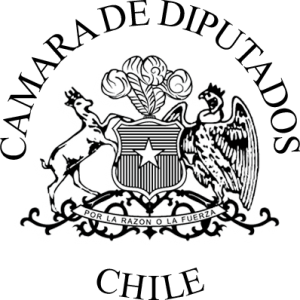
On June 8, 2018 the Cámara de Diputados of the Chilean Congress overwhelmingly passed a resolution calling on the Ministry of Health to proceed with compulsory licenses on patents covering hepatitis C virus (HCV) drugs. Resolution No. 68, passed with 107 votes in favor, is available here in Spanish. An English version unofficially translated by KEI is available here.
Civil society organizations led by Corporación Innovarte, including Fundación Nuevo Renacer, the Colegio de Químicos Farmacéuticos de Chile, and HCV patients led by Marcos Aguirre, played an active role in the process that led to this resolution. The text was introduced by Chilean legislators Giorgio Jackson, Miguel Crispi, Patricio Rosas, Daniel Verdessi, Ricardo Celis, Karol Cariola, René Saffirio, Pamela Jiles, Tomas Hirsrch, and Gabriel Boric.
This is the third resolution on compulsory licenses passed by the Chilean Cámara de Diputados in less than 18 months. In January 2017 the legislative body asked the Ministry of Health to adopt protocols and procedures to facilitate the issuance of compulsory licenses, and in January 2018 resolution 1014 declared that the public health problems created by the lack of access to HCV treatments constitutes sufficient justification to grant a compulsory license.
In this new resolution the Cámara de Diputados expresses support to the March 2018 resolution by the Ministry of Health, which determined that there are sufficient reasons to issue a compulsory license on HCV drugs. The Cámara de Diputados also asks the Ministry of Health to take, in an “urgent manner”, all the necessary steps to obtain that compulsory license.
1.- DECLARAR: La pertinencia y oportunidad de la declaratoria realizada por la Resolución Exenta Numero N° 399 /2018 del Ministerio de Salud, para responder a la problemática de salud pública que representa la falta de acceso real a los tratamientos mas eficaces requeridos por todas las personas infectadas por la hepatitis C en Chile.
2.- REQUERIR: Por Intermedio de Su Excelencia el Presidente de la República al Ministerio de Salud, para que ésta Cartera, directamente o por intermedio de sus servicios dependientes, dé curso de manera urgente a los actos necesarios hasta la obtención de las licencias obligatorias que se requieran respecto de las patentes que afectan a los medicamentos de la hepatitis C basados en el Sofosbuvir y sus combinaciones con antivirales de acción directa que correspondan, como por ejemplo Sofosbuvir + Daclatasvir o Sofosbuvir + Ledipasvir, entre otros.
“We are very pleased with this new resolution that express that the commitment to complete the process to obtain a compulsory license for hepatitis C drugs has not changed with the newly-elected Chilean Congress,” said Luis Villarroel, Director of Corporación Innovarte, adding that “this political endorsement will be very important to ensure that President Piñera moves ahead with his promise of improving access to medicines and to promote fair prices.” Chilean President Sebastián Piñera was inaugurated in March 2018, shortly after the previous Minister of Health determined that there are sufficient reasons to grant a compulsory license on HCV drugs. The overwhelming support from the Cámara de Diputados, signaling that the legislators expect continuity on this issue, sends a strong message to the new incumbents at the Ministry of Health.
The resolution cites a number of supporting laws, precedents and documents, including the Report of the UN High-Level Panel on Access to Medicines. It recalls that there are currently 1058 HCV patients being monitored in Chile by the Ministry of Health, and states that “effective treatment” shall be provided to all of them “at the shortest term possible” to safeguard their right to health.
Que actualmente, como lo señala el Ministerio de Salud en su Resolución N° 399, se han notificado entre 1997 y 2016, 5422 casos de hepatitis C y actualmente hay 1058 pacientes con hepatitis C en control de acuerdo con el Registro de estos por el Ministerio de Salud, a todos los cuales debe otorgarse el tratamiento efectivo en el más breve plazo para así resguardar su derecho a la salud y la vida.
For more background on the Chilean compulsory licenses request, see our FAQ.